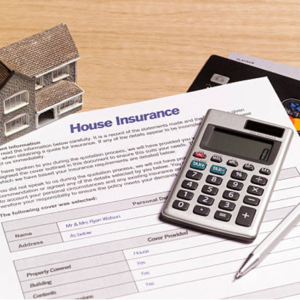Talking about water damage when it comes to your condo can get complicated because often the fault lies with other condo owners in adjoining properties, or mismanagement from property managers. It’s important to understand the various factors that make up a water damage claim.
Yes, water damage can be covered.
Condo insurance covers sudden accidental damage to your property but does not include water damage due to long term causes such as slow leaks.
As long as the water damage is in your unit specifically, you’re usually covered for damage from the following:
- Plumbing accidents
- Water heater accidents
- Appliance accidents
- Air conditioning system accidents
The cause must be sudden accidental damage and not caused by wear and tear. You can avoid damage due to wear and tear with regular checkups and maintenance.
For example, if your water heater develops a crack and leaks, your condo insurance may not cover that because keeping your appliances maintained is your responsibility. However, if something accidentally broke the water heater and spilled water everywhere, you may have a water damage claim because the cause was sudden and accidental.
If your leak damages a neighbors property, this will typically be covered under your liability.
What isn’t covered?
Typically condo insurance will not cover flood, drainage backups, and sewer backups.
It is possible to get insured against flood with an additional policy. FEMA says flood is defined by coming from an outside running source and the damage must impact more than one property. Please call us if you’re interested in adding a flood policy to your existing condo coverage.
Condo insurance will deny your claim if it originated from gradual damage. This is something that starts off small (like a chip of paint) but gets worse over time. This is considered something that should be addressed by regular maintenance.
We recommended that when you move into a new property (condo or otherwise) that you get a home inspection that includes plumbing. This will ensure that there are no pipe leaks or growing mold in your new property. An initial home inspection is especially important for very new or very old homes and covers many possible issues, not just water damage.
Be sure to check whether your policy is an All Peril or a Named Peril policy. An All Peril policy will cover everything EXCEPT what is specifically excluded in your policy. A Named Peril policy will cover nothing EXCEPT what is listed in your policy. This will give you the clearest understanding of what is and isn’t covered by your policy. Our office can help you understand the ins and outs of your policy.
When other neighbors get involved
If another condo is damaged because of actions from you or your condo, it’s likely that both condo
Condo insurance and HOAs
Condo insurance is designed to cover what your HOAs policy does not. It is very important to review your condo associations’ insurance policy to see where you are not protected.
If your property sustains damage from something the HOA policy typically covers, your personal condo policy will not cover it. Your insurance company and the HOAs insurance company will usually have a dialogue to see who is responsible.
It is a common misconception that everything in your condo is covered by your HOAs insurance policy. HOA policies usually just cover the structure and what is known as ‘common areas’, or areas that are used by everyone in the condo complex.
Another pain area for condo residents is the HOAs deductible. Make sure you check what your HOAs deductible is because there might be times where your damage amount will be less than the HOAs deductible. HOAs often carry high deductibles. If the deductible is too high, consider bringing it up in a condo association meeting and seek to get a clear understanding of who pays what in the event of damage originating from common areas.
Related: Finding the best discounts for your retirement condo.
Getting your neighbors or HOA to pay when your property is damaged.
If you have sustained damage to your property because of the actions of your neighbors or the larger property, your first step should be to stop the damage from getting worse. If something is flooding, turn the water off.
Don’t wait for the other party to respond before restoring your property. Acting fast to mitigate the damage is a big part of your policy. Mould can begin to form within 48 hours and the longer you wait, the less likely that any insurance will cover the damage. Contact a plumber to quickly mitigate the damage and find out the exact source of the problem. A good plumbing company will keep meticulous records that will help you in your claim.
Restoration Genie, a local emergency response company, keeps such good records that often an insurance adjuster will not have to visit your property to do an independent repair estimate.
Don’t forget your HOA leaders are usually property owners themselves and will be reluctant to get involved with unit-to-unit disputes. It is more important that you file the claim with your own insurance and let them pursue the guilty party on your behalf. This is a big plus to having your own condo policy because you have people working with you, not against you.
How to avoid having a claim denied
Here are the best ways to assist your insurance company and ensure your claim will not be denied:
- Keep good records. This includes your HOA’s insurance policy and records of your initial home inspection amongst others.
- Understand your policy. This will save lots of headaches down the road. Cullen Insurance will always take the time to ensure you completely understand your policy and you can always call us with any questions. Our biggest Condo expert is Barbara Richardson and you can reach her at (661) 945-2696. She’s a lovely, knowledgable person and would love to take your call.
- Do regular maintenance. We have included some maintenance you can do below but it doesn’t cover everything. Check with a plumber about what maintenance you should do to ensure everything is working correctly.
- Purchase the right insurance. There are lots of different types of condo and insurance is never a one size fits all situation. Call us for an understanding of what you need
covered . - Hire a plumber after the damage. A good plumber will keep good records and be able to tell you where the damage is coming from.
What condo association should be doing for you
We spoke to David Garibay of The Restoration Genie who gave us these helpful hints for keeping properties free from water damage. These tips are for external factors that your condo association should be doing on your behalf. It’s a good idea to check that they are doing it.
Clearing the roof valleys regularly.
Condo associations should check the valleys of your condo roof at least every 6 months to make sure the tiles are secure and there is no debris. This is especially important for properties with trees that hang over the roofs.
Cutting trees back
If you do have trees that hang over your property, your HOA should be
Check for damaged shingles
Regularly do a visual inspection of the shingles and gutters of your property. Because of the AV’s regular high temperature the fixtures can weaken, which leads to them blowing off in our high winds. It’s important that shingle damage be fixed ASAP.
Make sure your windows are properly caulked.
For condo owners, window management regularly does not fall on the property manager. Water damage from uncaulked windows is more common than people realize and the damage is not always immediately visible. Go for a tour of your house and check on the window caulking.
Speak to your property manager to see whos responsibility this is.
Keep pipe flashing secure.
The mastic used as adhesive for pipe flashing is prone to weakening during our hot months. This can cause pipe flashings to disconnect much earlier than people realize. Make sure your HOA checks that your pipe flashings are attached correctly and replace them every 3 years.
Keep your condo exterior painted
Many AV homes are built using stucco which absorbs water. Elastomeric, which is found in exterior paints, helps to shed the water from your house and prevents stucco from absorbing water. Your HOA should keep the building updated.
Cracked stucco can be a sign that the property is not being looked after correctly.
Do a roof tuneup every 5 years.
Many insurance companies require roofing maintenance every 5 years. Check the HOAs current policy to see if this is the case.
If you have a property manager, consider going through this list with them to ensure they are keeping your property free of damage.
Don’t neglect water damage because you live in Southern California.
Living in Southern California, we’re lucky enough not to experience too much damage from rain. Unfortunately, this can sometimes mean we neglect to take steps in protecting our property for when it does happen. Protecting yourself against water damage is
- Be aware of what your HOA policy covers
- Be aware of what your own condo policy covers.
- Get a condo insurance policy if you haven’t already.
- Get a home inspection when you move in
- Regularly check caulking and roofing to make sure you’re protected.
- Be active in shaping your HOAs insurance policy and deductible.
- Keep good records of your property
- Perform regular maintenance on appliances and systems that carry water.
- Call Cullen Insurance if you have any questions or concerns.
Have you got any tips for keeping your condo free of water damage? Let us know in the comments.




